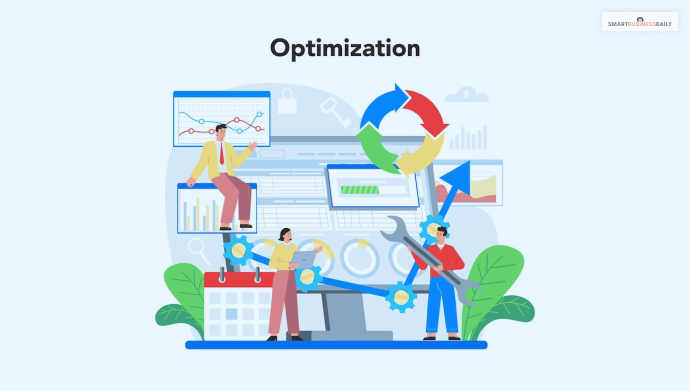Social Media Management For An Organization: How Does It Work?
22 July 2023
3 Mins Read

toc impalement
The social media presence of a brand can either make or break its prominence in the market. If improved upon properly, it may increase the audience base of the same even more as well. However, the results we are talking about here aren’t easy to come by.
For that, you will need to create a proper social media management strategy while collaborating with a digital marketing agency in Hong Kong. Keep reading to know more about it.
What is Social Media Management?

Social media management involves the procedure of scheduling, creating, and analyzing, publishing, content across various social media platforms. It aims to build and maintain an organization’s online presence, engage with the target audience, and achieve marketing goals.
But, why is it needed, really?
According to a report, almost 4.48 billion people currently use social media. And, among them, 63% are exclusively active. So, if you want to tap into such a huge range of audience, it will be important for you to use the power of social media effectively.
However, the problem is – you won’t get views on social media just by posting once or twice. It has to be done regularly in order to keep your audience engaged and make them love you.
This is where social media management comes in.
It helps you create a proper strategy and adhere to it in the long run. Thus, it becomes easier for you to create a routine and ensure that you are following it correctly. Move on to the next section to get some more information about how it works or can benefit you.
How Does It Benefit You?
The benefits of social media management are manifold and can’t be measured unless you have put it into work. Let’s keep reading till the end to get more information regarding the same.
1. Strategy Development

The first step is to develop an SM strategy aligned with the company’s goals.
It includes identifying the following –
- Target audience demographics,
- Selecting relevant social media platforms, and
- Setting specific objectives such as-
- Brand awareness,Lead generation, or
- Customer engagement.
2. Content Creation

Engaging and relevant content is crucial for social media success. Social media managers create a content plan that includes a mix of text, images, videos, infographics, and other media formats. The content you are creating will be tailored to suit each platform and is designed to resonate with the target audience.
3. Scheduling And Publishing

Social media management tools are used to schedule and publish content across various platforms. These tools allow managers to plan content in advance, ensuring consistent posting frequency and optimal timing for maximum audience reach. They also offer features for monitoring engagement, responding to comments, and managing multiple accounts efficiently.
4. Community Engagement

Social media is a two-way communication channel, and community engagement plays a crucial role. Social media managers monitor comments, messages, and mentions, and respond promptly to audience inquiries, feedback, and complaints. Engaging with the audience helps build relationships, foster brand loyalty, and improve customer satisfaction.
5. Social Listening And Monitoring

Social media managers use monitoring tools to keep track of mentions, hashtags, and conversations related to the organization or its industry. By listening to online discussions, managers gain insights into audience sentiment, emerging trends, and competitor activities. This information can be used to refine the social media strategy and tailor content accordingly.
6. Analytics And Reporting

Measuring the effectiveness of social media efforts is essential. Social media managers use analytics tools provided by each platform or third-party applications to track key performance indicators (KPIs) such as reach, engagement, conversions, and follower growth. These insights help in understanding the impact of social media activities and making data-driven decisions.
7. Optimization And Adaptation

Based on the analytics and monitoring data, social media managers continuously optimize their strategies. They identify successful content types, posting schedules, and engagement techniques, and adapt their approach accordingly. Regularly testing and experimenting with different tactics helps refine the social media management process over time.
The Bottom Line
It’s worth noting that social media management may also involve paid advertising campaigns on social platforms. In such cases, social media managers create and monitor ads, set targeting parameters, and optimize campaigns to achieve specific advertising goals.
Overall, effective social media management requires a combination of creativity, strategic planning, audience engagement, and data analysis to achieve an organization’s social media objectives.
Additional Top Resources:


















Comments Are Closed For This Article